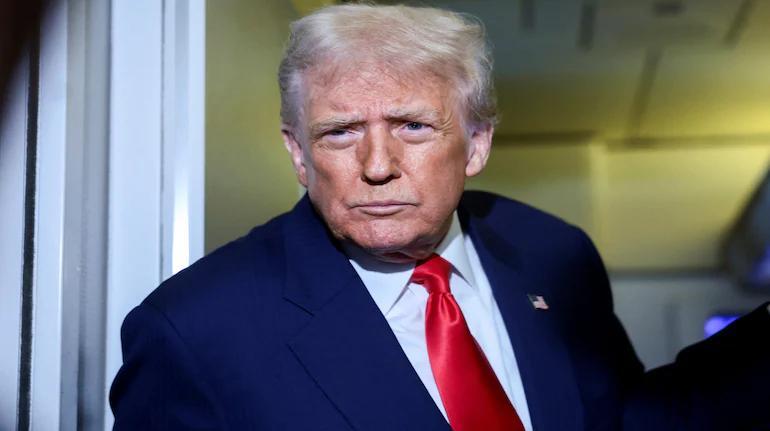
Trump Lowers Tariffs on Beef, Coffee Amid Inflation Concerns
In a move aimed at alleviating the financial burden on American consumers, President Donald Trump has signed an executive order to lower US tariffs on various agricultural imports, including beef, bananas, coffee, and tomatoes. This decision comes at a time when concerns about the rising cost of groceries are growing among the US population. The White House has released a comprehensive list of over 100 products that will be exempt from reciprocal tariffs, citing that these goods are not produced in sufficient quantities domestically.
The decision to lower tariffs on these essential items is a strategic move by the Trump administration to mitigate the impact of inflation on American households. With the global economy facing significant challenges, including trade tensions and supply chain disruptions, the cost of living in the United States has been on the rise. By reducing tariffs on imported goods, the administration aims to increase competition, drive down prices, and make these products more affordable for consumers.
One of the primary beneficiaries of this decision will be the average American consumer, who will now have access to a wider range of affordable food options. The reduction in tariffs on beef, for instance, is expected to lead to a decrease in the price of meat products, making them more accessible to low- and middle-income families. Similarly, the lower tariffs on coffee will be a welcome relief for coffee lovers, who have been facing rising prices due to trade tensions and supply chain disruptions.
The list of exempted products, which includes over 100 items, is a testament to the administration’s commitment to supporting American consumers. By identifying goods that are not produced in sufficient quantities domestically, the White House is acknowledging the importance of international trade in meeting the country’s food security needs. The exemption of these products from reciprocal tariffs will not only benefit consumers but also support the growth of the US economy, which is heavily reliant on trade.
The decision to lower tariffs on agricultural imports has been welcomed by industry experts, who believe that it will have a positive impact on the US economy. According to economists, the reduction in tariffs will lead to an increase in imports, which will, in turn, drive down prices and improve the overall competitiveness of the US market. This, they argue, will have a positive impact on economic growth, job creation, and consumer spending.
However, not everyone is convinced that the decision to lower tariffs on agricultural imports is the right one. Some critics argue that the move will harm American farmers, who will face increased competition from cheaper imports. They believe that the decision will lead to a decline in domestic production, resulting in job losses and economic instability in rural areas.
Despite these concerns, the Trump administration remains committed to its decision, arguing that the benefits of lower tariffs outweigh the potential costs. The administration believes that the exemption of certain products from reciprocal tariffs will not only benefit consumers but also support the growth of the US economy. By increasing competition and driving down prices, the administration hopes to create a more favorable business environment, which will, in turn, lead to increased investment, job creation, and economic growth.
In conclusion, the decision by President Trump to lower US tariffs on agricultural imports such as beef, bananas, coffee, and tomatoes is a significant move aimed at alleviating the financial burden on American consumers. By exempting over 100 products from reciprocal tariffs, the administration is acknowledging the importance of international trade in meeting the country’s food security needs. While there are concerns about the potential impact on American farmers, the administration remains committed to its decision, believing that the benefits of lower tariffs outweigh the potential costs.
As the US economy continues to navigate the challenges of inflation, trade tensions, and supply chain disruptions, the decision to lower tariffs on agricultural imports is a welcome relief for American consumers. With the global economy facing significant uncertainties, the Trump administration’s move to increase competition, drive down prices, and improve the overall competitiveness of the US market is a step in the right direction.
For more information on this development, please visit: https://www.moneycontrol.com/world/trump-signs-order-to-lower-tariffs-on-beef-coffee-other-goods-article-13678110.html/amp






